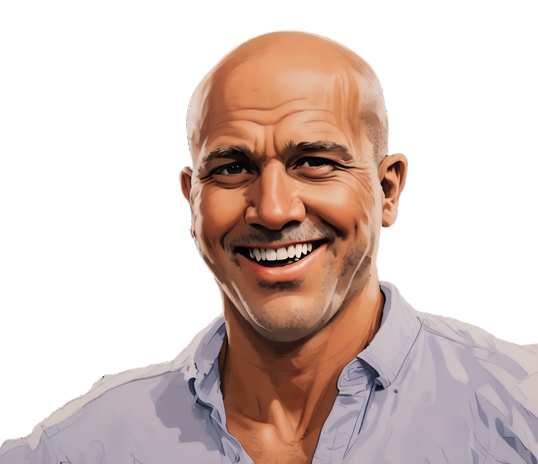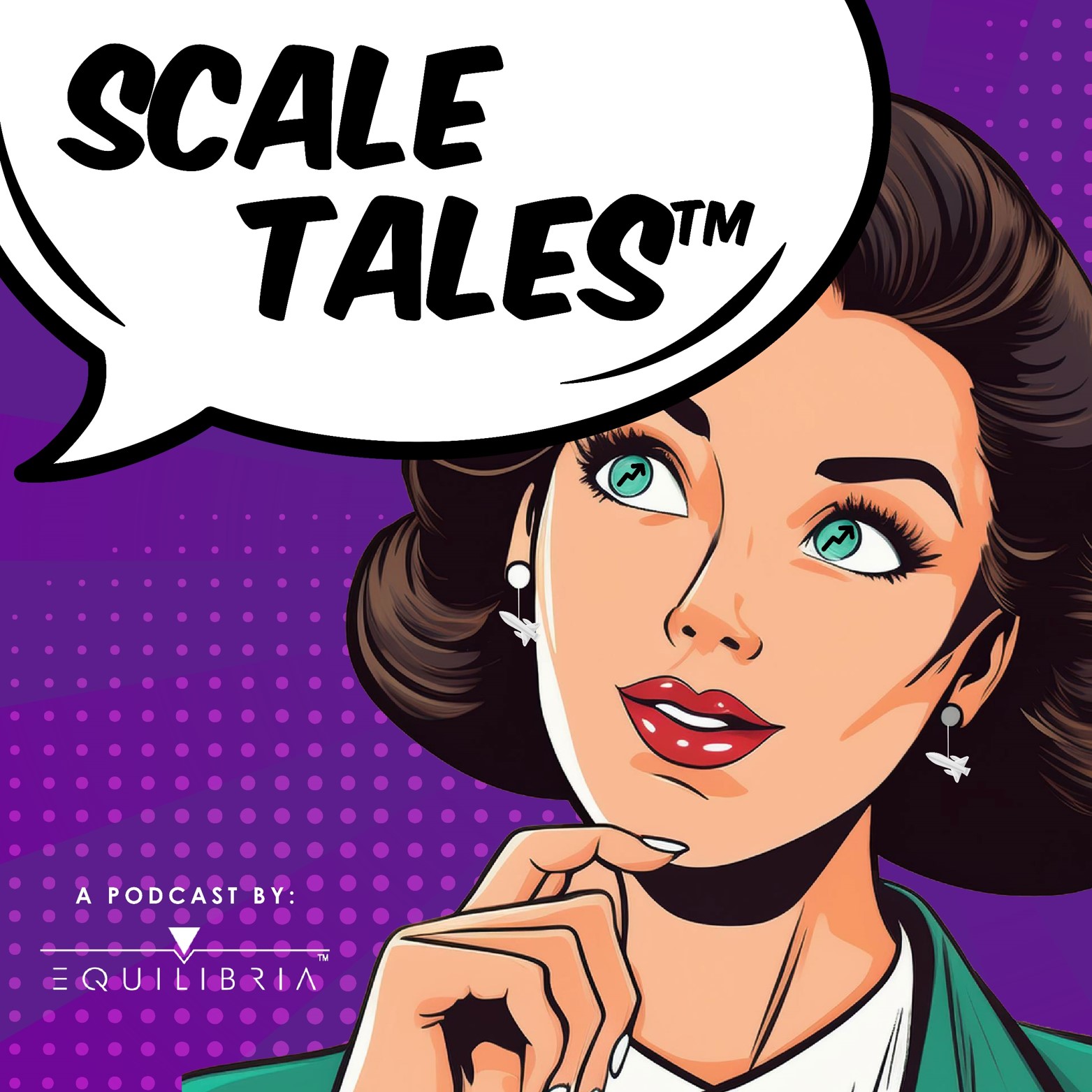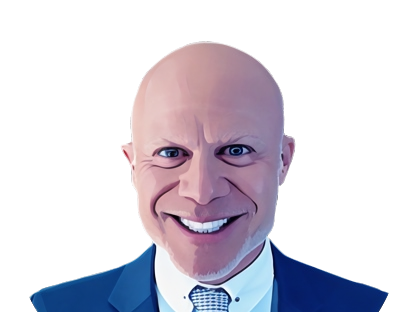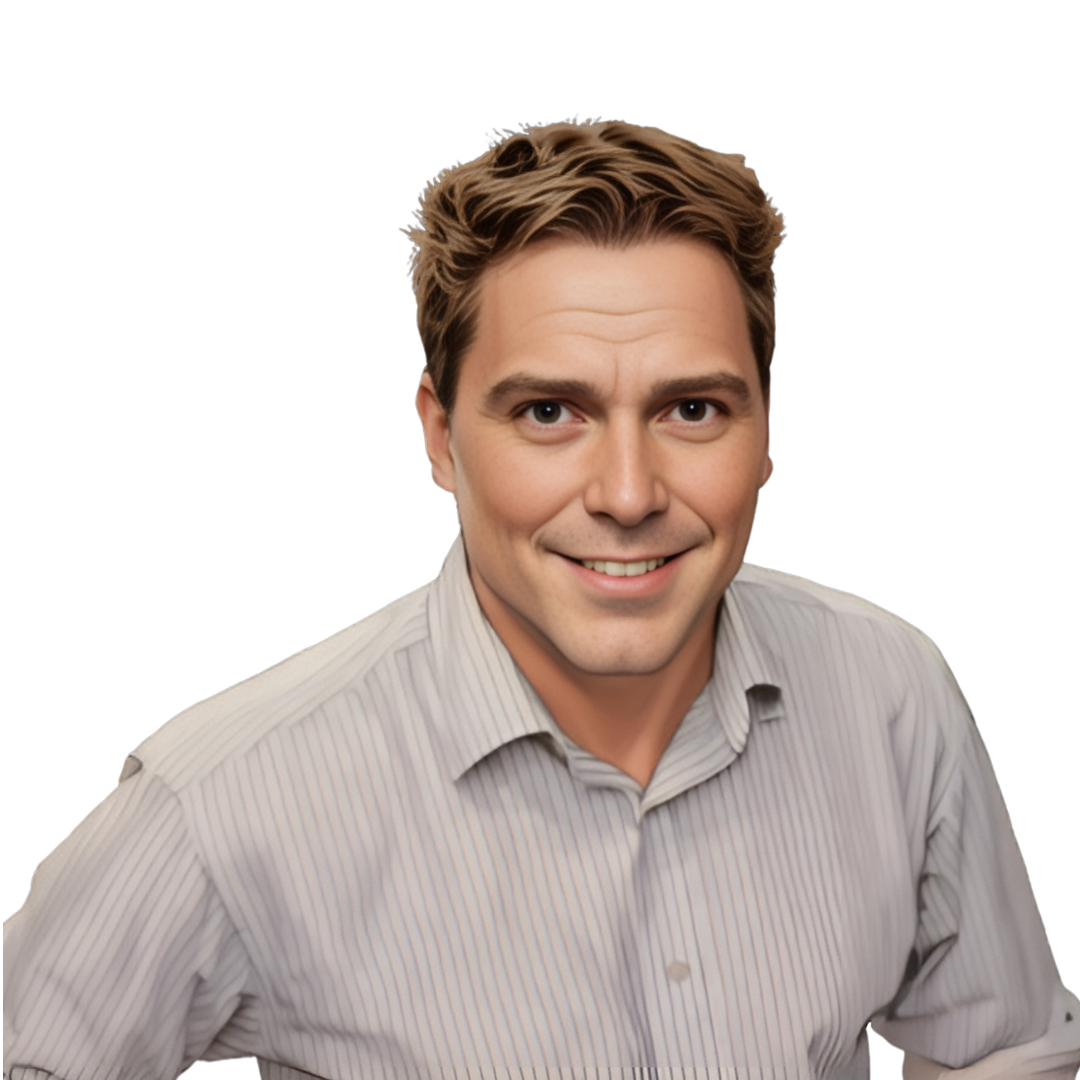Transcript
Online education seems to be all the rage these days. And it’s no surprise. Our quest for knowledge extends beyond traditional classrooms. When the pandemic hit, online education was the only option for educators and students alike.
Welcome to Scale Tales – the business storytelling podcast where entrepreneurs, executives and experts share firsthand accounts of that magical moment when consistent, quality work intersected with the ability to increase output without increasing costs.
I’m Alicia Butler Pierre and we’re about to discover not only what it takes to build and scale an online course, but also gain an appreciation for the real-world experience required to make that course successful.
This episode is brought to you by Equilibria, Inc. Equilibria provides training to assist fast-growing companies in documenting and improving their key processes for maximum operational performance. Visit EQBsystems.com to learn more. That’s EQBsystems.com.

Troy Trewin is the true definition of a serial entrepreneur. He’s the founder of GrowASmallBusiness.com, Co-Founder of The Distillers Institute, and has served as CEO for numerous smaller companies as well as served on several boards. His latest achievement is scaling an online course to assist others interested in starting a distillery business. As you’ll hear, creating a successful online course is not as simple as recording a few videos, regurgitating information you’ve studied. No! It requires providing a learning experience – one that can only come from mastering your craft over time and distilling it in a way that can easily be shared with others.
This is Ep. 8: How Troy Trewin Scaled an Online Course for Distilleries by 500% in Less Than Two Years
My name’s Troy Trewin. I’m the founder of Grow A Small Business. I’m based in Hobart, Australia. Hobart’s on an island called Tasmania, just south of Melbourne. and it’s a beautiful place to live. I’ve been here 11 years after four years in London, 10 years in Melbourne. And then I grew up in country Victoria. So yeah, absolutely love where I live.
I like to do things that are challenging. So I, did two degrees at once at university, I’ve got a bachelor in computing and in accounting. And then in 1996, I graduated, early in the next year I started working for PricewaterhouseCoopers, what is now the largest accounting firm in the world. I was there for three years. So late ‘99, I quit because I always knew what I wanted to be when I grew up, which was a business owner, I watched my parents grow a small fuel business from nothing into a medium-sized business. Dad was selling a hundred million liters of fuel a year doing about $80 million per annum. And then he retired in his late fifties. So I saw not just all the tough times they went through, but the successes in the growth.
And I just was in awe of all the moving parts that went into running and growing a small business into something a bit bigger. So late ‘99, I quit PWC and started two internet companies. And I was working a hundred-hour weeks, which is both silly and unsustainable.
Did you catch all of that? Shortly after Troy graduated university with two degrees, he worked at a large, global company and three years later quit to pursue entrepreneurship. He started not one, but two companies around the same time. What some may have seen as a having a glutton for punishment, Troy saw as an opportunity. Eventually, he relocated to London where he started or bought into other companies. By 2011, he had an epiphany while relaxing on a beach in Thailand.

I had the idea of how I could help more business owners because in London and Melbourne, I’d be asked a lot for advice from small business owners.
And so I registered the domain, GrowASmallBusiness.com and started to write about 30 blog posts. And, since then have been helping other business owners, And in the last 10 years, I moved away from technology working with and owning technology companies and moved into the distilling industry, mainly whisky.
His move to the distilling industry turned out to be a smart one. In true Troy fashion, he found himself not only running GrowASmallBusiness.com but also becoming the CEO of three companies and with an ownership stake in New Zealand Whisky Collection – home to the only remaining mature New Zealand Whisky in the world. He’s particularly proud of his time at Lark Distillery. Lark was a family-owned business, now listed on the stock exchange in Australia, that paved the way for other smaller scale distilleries.
I ran that for a couple of years as the first CEO there when the family sold out. There was no systems, at that time for the next chapter of growth. So we had to find the new talent to come on to help the business grow, and the family, obviously we’re quite close to those team members. So it was a really challenging time, but interesting to run a business that I didn’t have equity in, that was big and world renowned.
Soon after Lark Distillery, Troy found himself back at New Zealand Whisky Collection this time as CEO. He led a management buyout as well as a successful crowd-funding campaign to build a distillery. Word about his subject matter expertise and business acumen started spreading and soon he began either sitting on or chairing different boards in the industry.
But how does a guy with a background in accounting and technology get into a space like that? The answer, it turned out, was because he wanted to transition out of service-based businesses. This was another revelation he had back when he was in Thailand.
So I thought when I get back to Australia, I’m going to move into a product based business. And after I got back, moved to Tasmania, a good friend of mine had just found these old Whisky casks in New Zealand. This is well before the craft Whisky boom, particularly here in Australia. So he’d bought the four last 443 casks of New Zealand Whisky. And so we started re branding and exporting that and that’s going great. So that was really the catalyst for the move into, distilling.
And, as fate would have it, distilleries…stuck.

Yeah, that’s right I think it was having that mindset of, I want to move into a product based business now, not professional services anymore, the opportunity led itself to me, I believe.
And that takes us to 2019 – the year Troy’s scale tale begins. After several years working and being a key player in the distillery industry, opportunity once again knocked.
So a friend of mine, about three years ago, we caught up for coffee for a few times, and she was running an in-person training business called the Whisky Academy. So you’d have to come to Tasmania here, spent about a week. She would organize the logistics of visiting distilleries and a bit of class time accommodation, et cetera. And she’s not very detail orientated. And so was quite frustrated. The business went well, but didn’t really want to have all that logistics and admin to have to deal with.
In other words, she didn’t want to deal with the back-office operations.
I’d been mentoring her for quite a few years since I was at Lark where we met. And, I said to her, “Well, I’ve been studying up on the online education space. It’s growing quite quickly.” And this would have been mid-2019, and I encouraged her to, to do a test of some of her content with an online products. So three months later, she came back to the coffee table. She had done that and they had good traction, good response. And then she said, “I just can’t do it on my own.” And I said, “Okay, well, I’m happy to help. I’ll jump in.” So I, I became a part owner, but at the same time, I said, I think we need other skills, as, as the founders of this business.
This recognition would become a cornerstone of their success. From Troy’s vast experience, he knew they needed to build business infrastructure to scale it! His friend had the education experience. He had the management, finance, technology, and strategy skills but they needed additional skills to round out their leadership team.

And so I suggested another friend of ours, Brett Steele, who ran a Drink Tasmania Tour a business. And he also had his own whisky brand as well. And then the was Ian, who is in Melbourne. He was at star wood for seven or eight years. Pretty much from the day they open in there, they’ve recently just won 12 awards at the San Francisco spirits war. This distillery in Melbourne, which is huge, no distilleries ever done anything like that.
And they’re very successful. They’ve scaled. So he’s a very experienced distiller. So he brings a technical distilling side to the business.
And so The Distiller’s Institute was born. With an all-star team in place, they needed to make their partnership official.
So we’ve got all the business partners together, important lesson, obviously the shareholders agreement, which I’d made the mistake before, as I’m sure many business owners have. We got that right. And particularly I had a big focus on our founders contributing time every week and pro-rata to the equity because we weren’t equal 25% each. has got 40%, I’ve got 30 Bret, 20 and 10. And so we were able to hit the ground running and focused on the right thing and not be too bogged down in, you know, negotiations on shareholding and et cetera. And then within nine months we had written a very comprehensive course. We’d created a brand we launched in April, 2020.
If you’ve ever built a course, then you can appreciate why this is impressive. In just 9 months they had all legalities in place in addition to a marketable product. Now that they built it, they had to sell it. Not only would they grow their student base, but they’d scale it by over 500% in less than two years! How’d they do it? Don’t go anywhere because after the break, Troy will tell us all about it.
Some small businesses fail not from the lack of customers, but from too many. When your business receives positive publicity, it’s exciting! The spotlight attracts more customers and the cash flows in. But too much growth too soon can be catastrophic especially if your organization lacks the business infrastructure to support this growth.
Behind the Façade: How to Structure Company Operations for Sustainable Success is a book that introduces a proven framework for building business infrastructure. The book is structured into six relatable stories of entrepreneurs who apply this framework, giving you an inside look at how they solve their fast growth issues and how you can too! Pick up your copy today at BehindtheFacadeBook.com. BehindtheFacadeBook.com.
Before the break, we learned how serial entrepreneur Troy Trewin saw an opportunity to take a distillery company into the online education space. He helped assemble a team. And together they built a new company with a marquis information product. A lot happened along the way, including launching and scaling the first of what would become a series of courses – all during the height of a raging pandemic. Here’s Troy…
So just as COVID was hitting and right out of the gate, I think we had 60 or 80 students sign up. We’ve now got just an, almost about to hit 400 students. So Course One – our focus in that business is to help people who are interested in starting a distillery in Australia or New Zealand to help them. The Course One is to get to that decision guide, is this for me or not? And we try and we’re very upfront early on that we want to encourage more people not to open distilling businesses because they’re risky. They’re capital intensive. You could argue they’re more risky than a normal business because the capital that’s needed. So we wanted to educate the people using Course One. So the seven modules takes them through understanding the industry market research, putting together a business plan, marketing plan and, and importantly, a financial model.
So they’ve got the numbers, they can make an informed decision, how much cash do they need to raise? Can they raise that cash? And then also helping them think about the structure of the team, are gonna do this, that, and the final step is ask them, are you in or are you out? And if you’re in part of our course helps them fill out the paperwork you need here in Australia with the tax office. You’ve got to get a license from the tax office before we can even order a still, to operate here. So that was hugely popular.
For those who take the first course and decide that, yes, they’re definitely “in” and want to pursue starting a distillery, they can advance to the next course.

Then we launched Course Two for those that are definitely in there, they put their paperwork in and they want to set up now. So we give them a giant project plan or Gantt chart, which tells them all the steps and all the phases they need to go to, to open a distillery.
We don’t focus too much on the technical skill of making great spirit. We advise our students to do the course out of ed recalled from the Institute of Brewers and Distillers. So we’re very particular because we did the research when we found that there was a massive gap in the market for this type of business and financial and marketing planning, that’s needed to start up a business in this very specific industry.
An industry that, as Troy explains, has experienced exponential growth.
When I started at Lark in 2013, there may have been 32 craft distilleries in Australia. There’s now over 400. So in nine years has been phenomenal growth in here in Hobart, another distillery won the best whisky in the world in 2014. So it really shine a light on Australian craft whisky. So it was the first made Australia third country after Scotland in Japan to win the best single malt whisky in the world. And then everyone around the world wanted more the Tasmanian we’ve not Australian craft whisky. So then that had a flow on effect and it’s gone really, really well since that time.
As I’m listening to you, Troy, I love how casually you said, “Oh yes, we, we launched in April, 2020 at 60 or 80 students. And now, yeah, we’re up to 400 students.” But clearly there was a lot of hard work that went into scaling at that level. Can you share with us, some of the other key people behind the scenes that were in place and kind of walk us through the process and what technologies are you also leveraging to achieve that, that type of scale?
Yeah. The people is a great, great question. We were able to leverage our network of great contractors to use. Because I’ve got a technology background, I usually own the technology and finance corners of the businesses I own or sit on boards of. So about 14 months after launch, we had to move platforms. so the first one we used was Teachable. And the one we use now is Kajabi, which is amazing.
I’ve got an offshore team across small business. So they do the customer service and any data entry and a lot of lower value work so that founders can just focus on growing the business. We estimated, and we’ve pretty much kept to it, that we would only need 16 hours a week across the four of us, again, pro-rata to our equity holding, to invest in, in this business. And that’s been really important to remind us all that we shouldn’t be doing that low value work because that time is better off spent primarily marketing and creating content. So we literally opened up a Google doc and just started writing and put the structure together and then allocated, who needs to write what section. It was quite difficult to write alongside three other people, but we got there.
We’re really happy with it. Obviously we went through it a few times editing and making sure it had the same voice, et cetera, but we’ve been blown away. The glowing testimonials we’ve been getting is phenomenal.
Those testimonials come not only from students who realize they’ve been spared the financial burden of a business that they shouldn’t pursue but also from the roughly 10% who went on to either start distilleries or apply for their licenses with a shorter lead time. These types of successes are a true testament to the founders’ combined 40 years of experience.
It sounds like you each had your superpower and collectively you all came together to create something rather magical. So, I’m curious, Troy, what’s next? What do you see in the future for the Distillers Institute?

Well, we run monthly webinars for our students, which has been really well received. We’re looking at adding a few more products to the Distillers Institute on specific areas, such as capital-raising. We’re launching in New Zealand, under The Distillers Institute, New Zealand brand, in a month or two. And then next year we’re going to launch the Brewers Institute, which the brewing market is, is even bigger than distilling, in most countries.
So we’re quite excited by that. And then the idea for the model is to regionalize both businesses, The Distillers Institute and The Brewers Institute. So pick your country or two each year find a regional leader or a face of the brand. And then now we’ll tailor the content for say, we might launch in South Africa or America, and then launch the businesses there all while keeping our time capped at that time, which has been a really interesting challenge that I’ve put to the founders that we want to leverage and scale. We want to scale this business, but we want to leverage our time and work really, really smart and not get caught into the weeds of admin and the lower value stuff.
The good thing about replicating this model on the brewery side is that most of the heavy lifting is done. These new regional leaders will in essence have a playbook they can follow. This is what it means to scale. Less input for more output.
80% of the content for, brewing or the 80% of the content in distilling can be applied to a brewing cause it’s business planning, marketing market research. So only about 20% of the content needs to be changed for brewing contexts. So if this person comes on board, their job will be first to take the courses. And then as we bounced off each country, as we’ll find out with New Zealand, we’ve given them equity in that business. So we keep most of the equity, but regional partner will get some equity. we believe that, you know, tailoring the content for that region might be a 5% tweak of the actual content to local laws and customs.
Not only is Troy an advocate for market research, strategic planning, and business infrastructure, but he also implores us entrepreneurs to seek mentorship, professional development, and increase our financial literacy.
Definitely get a mentor or a few mentors because those people have already made the mistakes. They’ll help you avoid them. They’ll also change the way you think about business, build a habit of professional development as well. So invest one to four hours a week, reading business books, doing online courses, et cetera, become educated, and definitely do your planning.
Not just your business planning and your marketing plan, but a financial model so you can see into the future 10-year model to say this is how the business will look like if I hit all these key numbers. Definitely choose the right business partners. First, if you’re going to have someone shareholders working alongside you in the business, or even if you’ve got passive shareholders, make sure that, you know, they are good people and they’re going to contribute something more than just cash with some mentoring, for example.
Because some of the businesses I’ve chaired and saying that the shareholders being misaligned, it creates a lot of distraction, destroys a lot of value. and I’ll just say planning, like do your research and your planning and get into it. The GrowASmallBusiness.com website has a lot of free resources. There’s a free course to help business owners, improve their performance. So be more productive and less stressed at work.
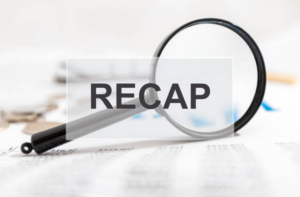
Ah, isn’t that the dream life as an entrepreneur or business owner? Being more productive and less stressed at work. To accomplish this, here’s a recap of some key lessons Troy shared:
1. Invest in building business infrastructure to organize, structure, and manage back-office operations.
2. Two heads are better than one! Understand if and how partnerships can accelerate your business’ growth. Make sure each partner adds value through the subject matter expertise they have.
3. Consider offering ownership or some type of equity stake to potential partners.
4.Educate your customers about what they are getting into when investing in your products or services. They’ll thank you for it, even if they end up not making a purchase!
5. Spend time conducting research to know what marketplace gaps you can fill.
6.Different Transition music Pick and stick to a weekly time cap to force you and your partners to focus on business development.
7. Delegate admin and back-office operations work so that you can honor your weekly time cap.
8. Create an operations playbook or blueprint to help replicate and scale.
9.Become financially literate. Seek mentorship and learn from others. You can’t make all the mistakes on your own.
Thank you for listening! If you learned something valuable from this episode, please leave us a five-star rating and review wherever you’re listening. Visit us at ScaleTalesPodcast.com to access this episode’s show notes. They contain links to all the resources shared. Again, that’s ScaleTalesPodcast.com.
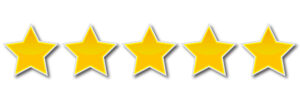
A special thank you to Troy Trewin for sharing his scale tale. I’m Alicia Butler Pierre and I produced and narrated this episode. Music production and original score by Sabor! Music Enterprises. Video editing by Gladiola Films. Show notes by Erika Ve Revilla.
You’ve been listening to Scale Tales, a podcast by Equilibria, Inc









